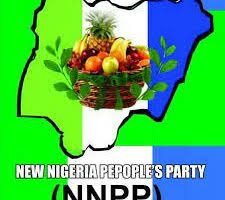As the dust generated by the fuel subsidy removal is about to settle, Nigerians are yet to come to terms with the new price regime. In this piece, the Petroleum Products Pricing Regulatory Agency (PPPRA) offers explanations on the policy. MUSA ADAMU writes.
According to the PPPRA, it has become imperative to set the record straight so as not to leave unsuspecting Nigerians in the hands of interest groups in the country.
Benefit of the new price regime
The new pricing regime is out solves the recurrent fuel scarcity crisis by ensuring availability of products at all locations of the country.
The move will also reduce the tendency of hoarding, smuggling and diversion substantially and stabilise price at the actual product price.
It will ensure market stability and Improves fuel supply situation through private sector participation and create labour market stability-potentially create additional 200,000 jobs through new investments in refineries and retails and prevent potential loss of nearly 400,000 jobs in existing investments.
Why the new price regime
This has been brought about by the non-availability of foreign exchange (forex) to import petroleum products. Marketers have drastically reduced their importation since Q3 2015 due to a scarcity of forex. There is a need for them to source independent of CBN to be able to meet the nation’s demand.
Also the rise in crude oil price and prevailing high cost of importation has brought back subsidy regime (at the present price of N86.50) since April 2016. Due to decline in government income related to crude oil price and limited crude oil output caused by the spate of renewed vandalism and sabotage of oil infrastructure in the Niger Delta, there is neither funding nor appropriation to cover this in the 2016 Budget.
Difference between this new price regime and previous price reviews
Before arriving at the new price regime, a comprehensive study of the costs of importation was undertaken. All stakeholders including marketing companies and independent experts were consulted in arriving at the appropriate cost reflective regime.
This is in furtherance of the price modulation framework rolled out in January 2016 which entails modulating prices down or up on a periodic basis to reflect actual prevailing costs.
Not deregulation
While the federal government is not deregulating, the government through this new price regime will ensure that the price of products are monitored and modulated to ensure that citizens get a fair value for products they purchase.
Real cost of PMS to the Nigerian consumer
The estimated “true” cost of PMS was valued to be N243.05 per litre. This is factoring the estimated average time spent to obtain PMS at the official price (N86.50), the estimated hourly wage of the average Nigerian, the average price of PMS on the black market and the estimated average volume bought per visit to the filling stations and also factoring in the frequency Nigerians source PMS from the different markets
Why scarcity
Unavailability of foreign exchange and inability to open letter of credit has forced marketers to stop product importation and this imposed over 90% supply on NNPC since October 2015 in contrast to the past where NNPC supplies 48% of the national requirement.
NNPC does not have the resources for and is not designed to meet this increase in supply. This has resulted in the current fuel situation across the country.
Fuel availability
The new price regime will allow marketers source for their foreign exchange independently of CBN and ensure adequate product supply in all locations of the country whilst catering for full cost recovery and averaging of prices across the nation
New price regime impact on the economy
Clearly the continuation of subsidies in any form for PMS limits the ability of government to deliver on its statutory functions such as power generation, security, education, health etc.
The new price regime will enable government focus on these critical sectors and free up our scarce foreign exchange via CBN to be used in other sectors
Subsidy provision in the 2016 budget
There is no provision for subsidy in the 2016 budget
Why should Nigerians not enjoy low petroleum prices?
Crude oil price is an internationally traded commodity. The prices are not set by the countries that produces it. Neither do oil producing countries get a discount in the international market for producing this product.
Furthermore, crude oil price accounts for about 80% of the final cost of fuel. Other costs include depot charges, transportation costs, chemicals, spare parts, raw materials etc. is related to host of economic factors. . Therefore, at the current crude oil price of $40 per barrel, the finished domestic refined fuel sold to Nigerians cannot be priced lower than the cost of the crude plus the other associated costs incurred in converting the crude into PMS and supplying the product to the consumer.
Marketers to sell at government regulated price
The relevant regulatory institutions (DPR, PPPRA) will be further empowered to ensure level playing ground, strict compliance with market rules by all stakeholders and consumer protection.
PMS price in Nigeria compare to other countries
Even with the new price regime, Nigeria would remain one of the cheapest fuel markets in Africa and this could even be lower once competition takes effect. Likelihood of smuggling to neighboring countries will also be significantly reduced with the new price regime.
When to stop petroleum importation
Nigeria will only stop products importation when it attains local production sufficiency. The present administration is working assiduously on key initiatives towards boosting our local refining capacity. The overarching objective is to create a competitive downstream petroleum market in Nigeria and be a net exporter of petroleum products by 2019.



